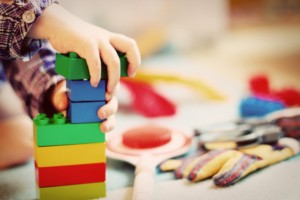Does my child need speech / language therapy? It’s a question most parents ask at one time or another. In fact, about 10 of school age children are living with some type of communication challenge.
 It isn’t always easy to navigate the trek from the moment of concern to your child getting the appropriate help they need. From the first step to the journey of success, First Words Speech Therapy is here for you. We can guide you through the process, share available resources, from initial screening to developing a comprehensive plan.
It isn’t always easy to navigate the trek from the moment of concern to your child getting the appropriate help they need. From the first step to the journey of success, First Words Speech Therapy is here for you. We can guide you through the process, share available resources, from initial screening to developing a comprehensive plan.
Our clinic is conveniently located at 1239 Mount Vernon St. Orlando, Fl. 32803. Contact us for a free phone consultation at 407-810-2773.
The process of speech and language therapy does not need to be frustrating or complex.
For children under the age of 3
For early language skills, the American Speech – Language – Hearing Association (ASHA), has an easy summery. Depending on the age of the child, social relatedness, and play skills, there are a few questions to ask yourself.
Does your child combine two words together to form a short phrase?
Is your child able to follow simple, one step instructions?
There are several programs and scholarships available, First Words Therapy also accepts most insurance plans and Florida Kid Care. Our children are our future, their development is an investment
According to ASHA, signs of a speech or language problems include:
Birth to 3 months Not Smiling or playing with others
4 -7 months Not babbling
7 – 12 months Making only a few sounds. Not using gestures, like paving and pointing.
7 months – 2 years. Not understanding what others say.
12 -18 months Saying only a few words
18 months – 2 years not putting words together
2 years saying fewer than 50 words
2 -3 years Having trouble playing and talking with other children
2 – 3 years having problems with early reading and writing. For example, your child may not like to draw or look at books.
You can help your child learn language by
Talking, reading, and playing with your child.
Listening and responding to what your child says.
Talking with your child in the language that you are most comfortable using.
Teaching your child to speak another language, if you speak one.
Talking about what you do and what your child does during the day.
Using a lot of different words with your child.
Using longer sentences, as your child gets older.
Having your child play with other children.


